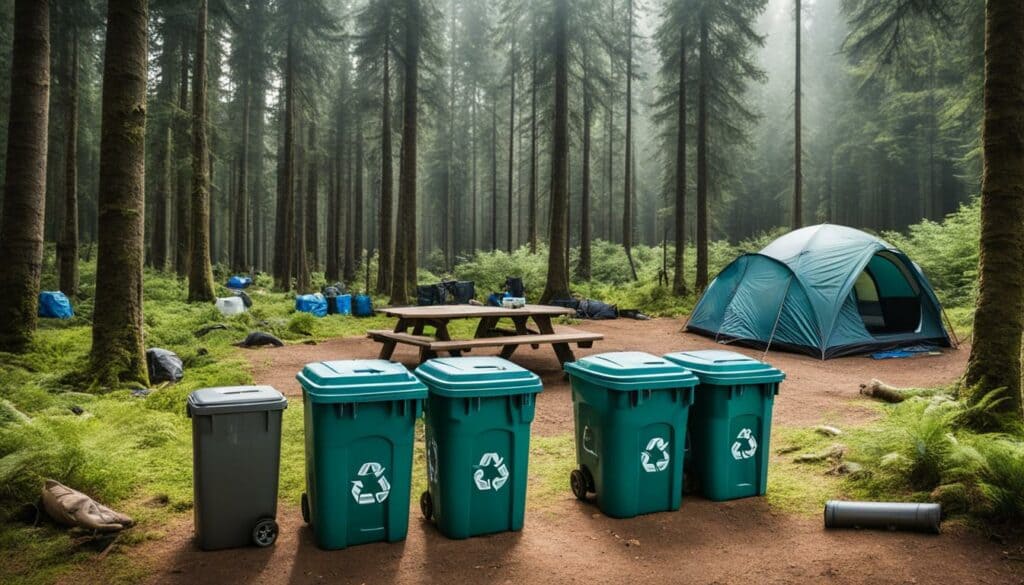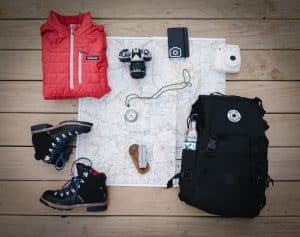7 concrete stappen richting ecotoerisme

Tegenwoordig is er veel om het milieu en onze impact daarop te doen. Terecht, denkt natuurlijk iedereen meteen. Toch blijkt het in ons alledaags leven moeilijker dan gedacht om die groene weg in te slaan. Dat we bij Solbio graag willen helpen richting evenveel plezier met een kleinere impact is ondertussen al geen geheim meer. Al ligt ook bij ons de nadruk nog steeds op een leuke trip en een onvergetelijk avontuur. Niemand zegt dat het één het ander in de weg hoeft te staan. Lees hier onze concrete tips richting een topvakantie met een kleinere ecologische voetafdruk, beter bekend als ecotoerisme.
1. Draag zorg voor je materiaal
Deze eerste tip spreekt natuurlijk voor zich. Goed onderhoud van je kampeergerief en caravan, maar ook je kleren en zelfs je voorraad eten en drinken is altijd een goed idee. Door zorg te dragen voor je materiaal en zuinig om te springen met je voorraad spaar je niet alleen een hele hoop kosten uit. Het is ook een uitstekende manier om je verbruik en zo je uitstoot te verkleinen. Door onvoorzichtig om te springen met je materiaal maak je sneller opnieuw kosten en blijf je steeds zitten met een hoop moeilijk wegwerpbaar afval. Natuurlijk gaan dingen stuk. Dat is onvermijdelijk. Maar door een goed onderhoud kan je de levensverwachting van je tent, trekkingsrugzak of wandelschoenen aanzienlijk verlengen.
2. Plan de juiste activiteiten
Ook bij het plannen van activiteiten kan je letten op jouw impact. Ecotoerisme manifesteert zich al langer en op allerlei manieren, maar de laatste jaren is er toch ook een duidelijke verandering in hoe mensen kijken naar bepaalde activiteiten. Activiteiten die op zichzelf een grote uitstoot produceren zet je daarom best onderaan je lijstje. Denk bijvoorbeeld aan een avontuurlijk mountenbike trip in plaats van een tochtje met de quad. Ook hier geldt natuurlijk dat niet alles taboe is. Laat je zeker niet tegenhouden om die ene, misschien iets minder groene, activiteit te plannen als je dat echt wil. Maar overdaad is nooit goed. Probeer de focus te leggen op activiteiten die minstens even avontuurlijk en spannend zijn, maar een stuk minder vervuilend zijn.
3. Groene campings
Er bestaan heel wat campings die inzetten op een groen beleid en het beperken van hun uitstoot. Campings waar je je camper of caravan bijvoorbeeld kan aansluiten op een volledig eigen, groen stroomnet. Daarnaast zijn ze vaak nog bezig met een sterk afvalbeleid en het beperken van de uitstoot van zowel de camping als hun gasten.
4. Vervang vervuilers
Tot hiertoe hadden we het steeds over uitstoot en energie, maar ecotoerisme is meer dan dat. Een andere manier, misschien zelfs nog wel de gemakkelijkste, is effectieve vervuilers te mijden. Denk zorgvuldig na over welk afwasmiddel, welke zeep of toiletvloeistof je gebruikt. Zo zit het erg in ons ingebouwd om te denken dat hoe harder het schuimt en hoe straffer het ruikt, hoe doeltreffender het werkt. Dit is niet altijd het geval. Er bestaan tal van natuurlijke zepen en wasmiddelen. Biologische toiletvloeistoffen zijn er niet in overvloed, gelukkig is één genoeg!
5. Beperk afval
Een zeer eenvoudige tip die voor zichzelf spreekt. Men verschiet er steeds van hoeveel afval een mens produceert. Toch kan je zelf een heel groot deel hiervan vermijden. Denk aan wegwerp flessen, plastic zakjes, producten die soms wel vijf keer verpakt zijn, noem maar op. Geen afval is natuurlijk onmogelijk, zorg er dus steeds voor dat je je afval correct kan weggooien. Heb je die mogelijkheid niet? Houd het dan bij tot dit wel mogelijk is.
6. Bespaar energie in huis
Het gaat toch over ecotoerisme, dan ben je toch niet thuis? Tuurlijk niet, maar vergeet niet hoeveel zaken en apparaten er thuis blijven. Het zou je verbazen hoeveel mensen vertrekken voor enkele weken en alle elektrische apparaten gewoon laten draaien. In de eerste instantie kijk je er ook snel over, maar waarom zou je een ijskast laten draaien voor een paar zaken die er nog in zitten? Neem het mee voor onderweg en laat je ijskast uit staan tijdens je vakantie. Hetzelfde geldt voor zo goed als elk apparaat dat nog verbonden is. Bovendien vormen ze ook een extra risico voor schade of ongelukken.
7. Bereken jouw impact
Tenslotte zijn er tegenwoordig ook manieren om de voetafdruk tijdens je trip te berekenen. Zo kan je op voorhand kijken wat de impact van je reis ongeveer zal zijn, maar er zijn ook apps waar je tijdens de trip heel kort kan volgen waar het lek in jouw uitstoot zit. Sommige applicaties, zoals https://www.treecological.be/, gaan zelfs verder. Zij voorzien een platform waar je de uitstoot die je toch maakt kan compenseren. Het is niet de manier om bewust te worden van je afdruk, maar het kan wel eens een leuk idee zijn om af en toe een trip te compenseren.
Het effectief gaan compenseren van jouw trip is zeker niet waar we voor pleiten, maar er zijn wel erg veel eenvoudige ingrepen om toch een stuk bewuster om te springen met je uitstoot. Het hoeft zeker niet in de weg te staan van plezier of avontuur, daarom zit ecotoerisme zo in de lift. Je krijgt dezelfde fun, maar op een verantwoorde manier.


